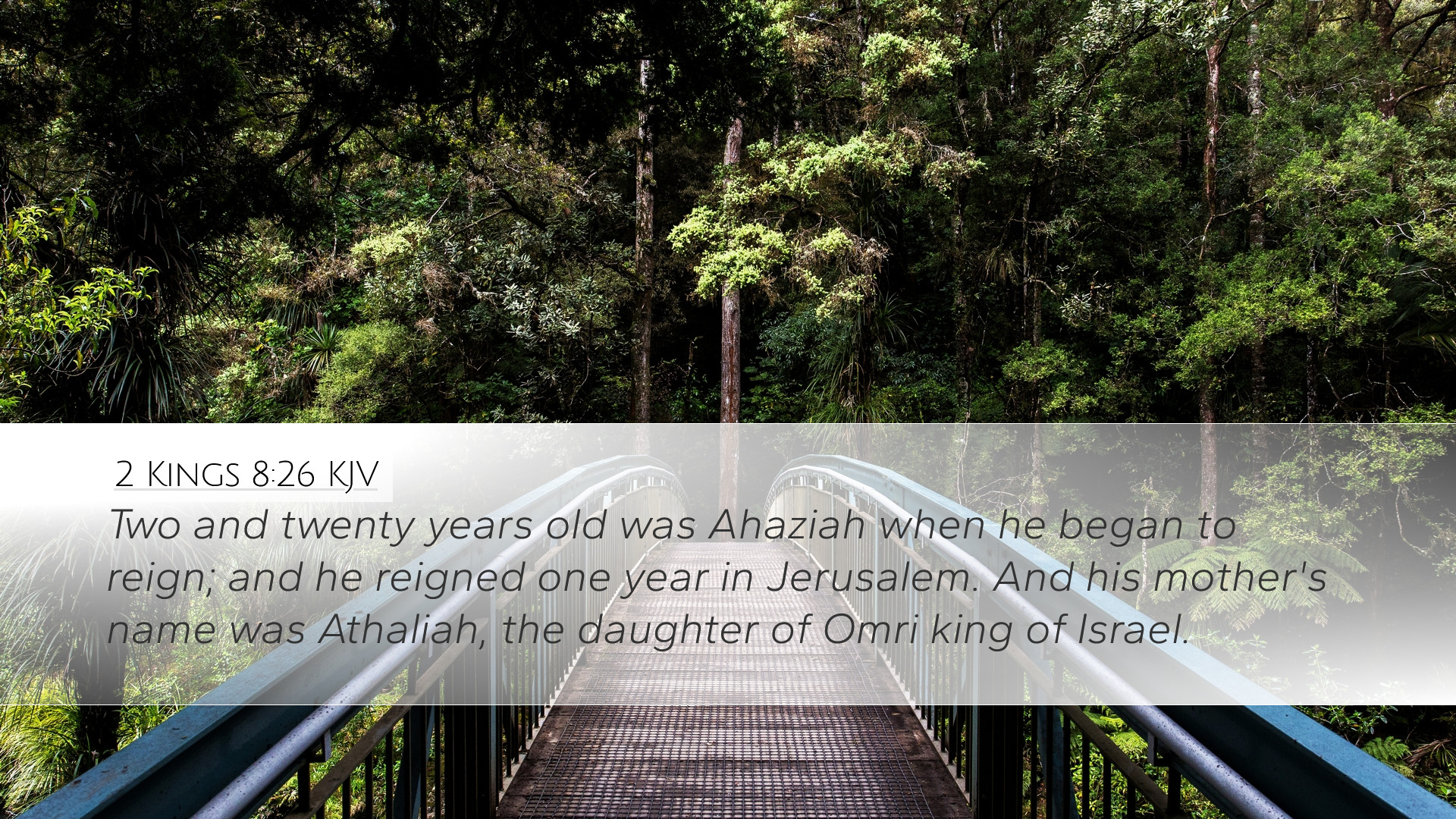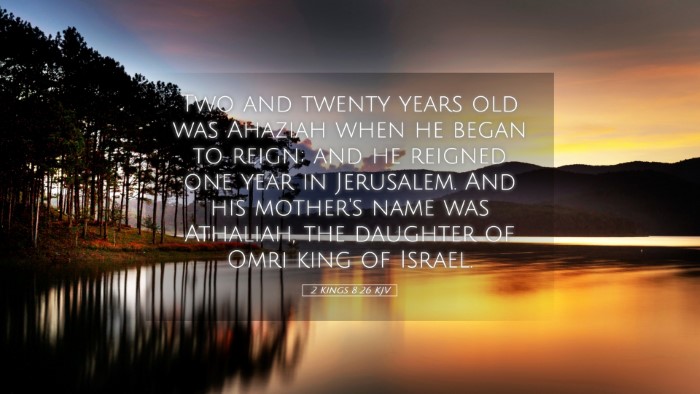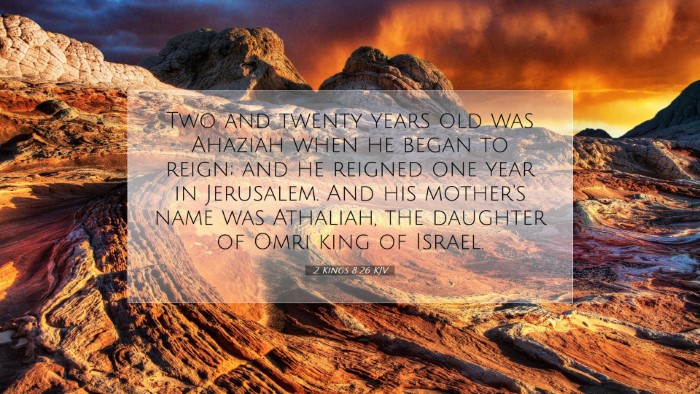Commentary on 2 Kings 8:26
Scripture Reference: 2 Kings 8:26 (KJV)
"Two and twenty years old was Ahaziah when he began to reign; and he reigned one year in Jerusalem. And his mother's name was Athaliah, the daughter of Omri king of Israel."
Introduction
This verse introduces Ahaziah, the son of Jehoram, and highlights important aspects of his reign and lineage within the context of the Kingdom of Judah. The details provide significant insights into the historical and theological implications of his short yet impactful kingship.
Historical Context
Ahaziah's reign occurred during a tumultuous period in Judean history marked by fluctuating allegiances and moral decay. His youth and the influence of his mother, Athaliah—affiliated with the idolatrous practices of Israel—set the stage for the challenges that defined his rule.
The Age of Ahaziah
Matthew Henry emphasizes that Ahaziah began his reign at the age of 22, which speaks to the vulnerability of a young ruler in an unstable political climate. This age implies a lack of experience, particularly in leading a nation and resisting external and internal pressures:
- Henry notes the volatility of young leaders, suggesting that fire may burn brightest yet flicker out most swiftly.
- Ahaziah’s youth contributes to a narrative of unexpected pitfalls and failures in leadership, which serves as a cautionary tale for both rulers and those they govern.
His Short Reign
Ahaziah reigned for only one year, indicating the brevity and perhaps instability of his kingship. Albert Barnes remarks that such a short reign highlights the challenges he faced, both from the external threats of nations and the internal dissent stemming from his own familial ties to idolatry:
- Barnes suggests that the brevity of Ahaziah's reign is telling of divine judgment, reflecting God’s displeasure with the practices being promoted during his mother’s influence.
- The rapid downfall serves as a reminder of the transitory nature of power and the consequences of leading a nation astray.
Influence of Athaliah
Critical to understanding Ahaziah's character and decisions is his mother, Athaliah, a significant figure in both his life and reign. Adam Clarke provides insight into her role and the implications for Ahaziah's leadership:
- Clarke points out that Athaliah was the daughter of Omri, suggesting that Ahaziah's upbringing was heavily influenced by the practices of the house of Israel, which worshiped Baal.
- This familial connection symbolizes the moral and spiritual decline, as the lines between the worship of Yahweh and Canaanite deities became increasingly blurred during his reign.
Theological Implications
The life of Ahaziah opens up significant theological discussions regarding the nature of leadership, the consequences of idolatry, and God’s sovereignty over the affairs of nations:
- Matthew Henry notes that leadership comes with responsibility and that Ahaziah's failure is a stark reminder of the judgment that follows those who lead others away from God.
- As demonstrated in Ahaziah’s story, young leaders molded by corrupt practices can lead entire nations into spiritual decline, emphasizing the urgent need for divine guidance.
Lessons for Today
The account of Ahaziah conveys timeless lessons for contemporary leaders, theologians, and students of the Bible:
- Leadership Awareness: The responsibility of leadership is immense, and character plays a significant role in determining the direction a leader will take. The impact of mentorship and parental influence can shape young leaders profoundly.
- Importance of Integrity: The corruption present in Ahaziah’s lineage offers a cautionary tale against complacency and moral compromise, urging leaders to consistently strive for righteous paths.
- Divine Judgment and Mercy: The story serves as a testament to God’s providence; even in the face of disobedience, there lies an opportunity for repentance and redemption.
Conclusion
2 Kings 8:26 provides a snapshot into a critical juncture in Israel’s history, emphasizing the need for integrity, discernment, and a deep commitment to God’s ways amongst leaders. The intertwined fates of Ahaziah and Athaliah remind us that the past’s influences can deeply affect present choices. Understanding their story compels both reflection and action, be it in personal spiritual journeys or wider communal endeavors.


